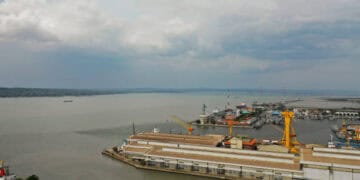On December 21, 2022, President Joko Widodo of Indonesia made a significant announcement that the country will implement a bauxite export ban starting in June 2023. This move is aimed at bolstering domestic mineral resource processing. In this article, we’ll delve into what the bauxite export ban entails, the reasons behind Indonesia’s decision to introduce it, and its potential impacts.
What is the bauxite export ban? Bauxite is a crucial raw material for the large-scale production of aluminum, a versatile metal extensively used in aircraft construction, building materials, consumer durables, electronic components, and chemical and food-processing equipment.
Indonesia holds a notable position in the global bauxite landscape, being the sixth-largest producer worldwide and possessing the fifth-largest reserves, according to data from the US Geological Survey.
As per President Widodo’s announcement, effective from June 2023, the Indonesian government will impose a ban on the export of bauxite ore. Additionally, exports of bleached bauxite will also be restricted.
Why is Indonesia introducing the bauxite export ban? Indonesia’s introduction of the bauxite ban is influenced by its prior success in nickel processing, which followed the ban on the export of raw nickel materials in January 2020.
According to Arsjad Rasjid, Chairman of the Indonesian Chamber of Commerce and Industry, the value of the country’s nickel exports reached US$20.9 billion in 2021 and was expected to surpass US$30 billion in 2022, a significant rise from just US$1.1 billion at the end of 2014. Arsjad believes that the export ban can contribute to Indonesia’s economic well-being.
With the bauxite ban, President Widodo aims to promote domestic value addition, job creation, an increase in foreign exchange reserves, and more equitable economic growth. He expressed his commitment to fostering domestic downstream activities for the benefit of the people in a statement on Facebook on December 21, 2022.
What are the potential impacts of the bauxite export ban? Economic Growth in Indonesia The Indonesian government anticipates that the export ban will boost the domestic economy by enhancing local value addition. Regions where bauxite reserves are situated, and where the bauxite industrial chain will develop, are likely to experience significant economic growth.
Advancement of Indonesia’s Electric Vehicles Industry The bauxite ban may be a crucial step for Indonesia to establish an ecosystem for electric vehicles. Similar to nickel, bauxite plays a pivotal role in the production of electric vehicles. Nickel is used in lithium batteries, while aluminum produced from bauxite is essential for building lightweight and durable electric vehicles. Indonesia is reportedly finalizing plans to subsidize electric vehicle sales, and President Widodo has instructed government officials to use electric vehicles for official purposes.
Impact on China Indonesia has been the third-largest bauxite supplier to China in recent years, following Guinea and Australia. In 2021, China imported 17.8 million tons of bauxite from Indonesia, constituting approximately 15 percent of its total bauxite imports.
However, China’s reliance on Indonesia for bauxite has been decreasing over time. Before 2014, Indonesia was China’s primary bauxite supplier, providing 80 to 90 percent of its imports. The concentration of imports from Indonesia made China’s bauxite supply vulnerable to Indonesian trade policies. In 2012 and 2014, under export bans imposed by Indonesia, bauxite imports to China significantly decreased. Subsequently, Australia and Guinea emerged as the two largest suppliers of bauxite to China. Additionally, China diversified its bauxite imports by sourcing from Malaysia, India, Brazil, Ghana, and other countries.
Given this context, Indonesia’s export ban on bauxite ore may have a limited impact on China’s aluminum industry.
Stay updated with supply chain news at The Supply Chain Report. Learn more about international trade at ADAMftd.com with free tools.
#BauxiteExportBan #IndonesiaBauxite #JokoWidodo #BauxiteOre #NickelProcessing #IndonesiaEconomy #ElectricVehiclesIndonesia #AluminumIndustry #GlobalBauxiteTrade #ChinaBauxiteImports #BauxiteProcessing #IndonesiaNickelSuccess #ValueAdditionIndonesia #BauxiteImpact #IndonesianChamberOfCommerce #EconomicGrowthIndonesia #BauxiteExportRestrictions #DomesticBauxiteProcessing #IndonesiaElectricVehicles #RawBauxiteBan
















